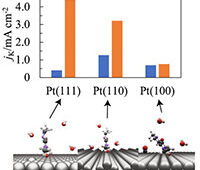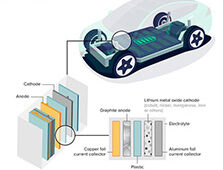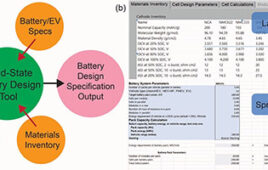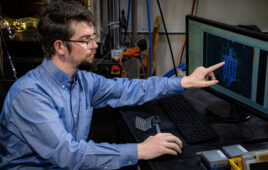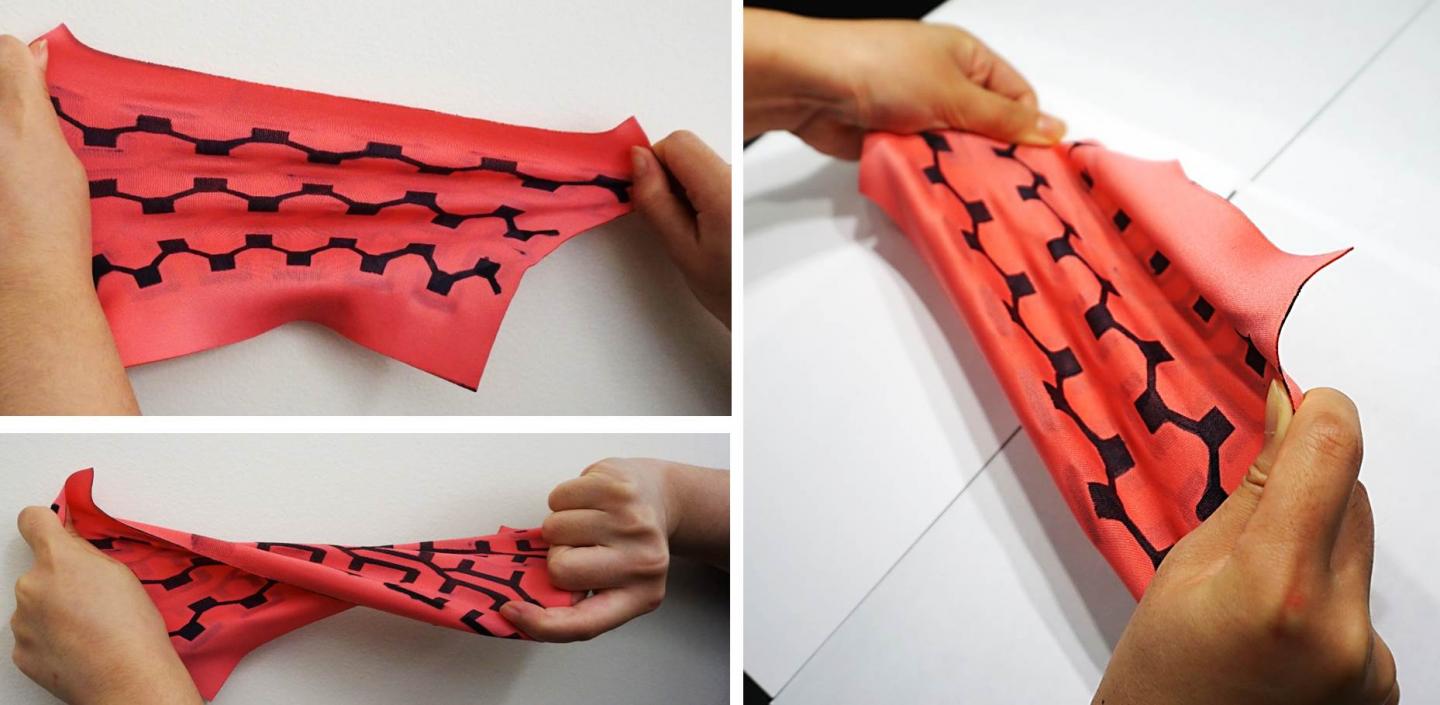
Caption This entirely textile-based, bacteria-powered bio-battery could one day be integrated into wearable electronics. Credit Seokheun Choi
A stretchable battery made entirely out of textiles could usher in the next generation of wearable electronics.
A team of researchers from Binghamton University, State University of New York has developed a textile-based, bacteria-powered bio-battery that exhibits stable electricity-generating capability when tested under repeated stretching and twisting cycles.
The battery is a flexible and stretchable microbial fuel cell (MFC) monolithically integrated into a single sheet of textile substrate.
“There is a clear and pressing need for flexible and stretchable electronics that can be easily integrated with a wide range of surroundings to collect real-time information,” Binghamton University Electrical and Computer Science Assistant Professor Seokheun Choi said in a statement. “Those electronics must perform reliably even while intimately used on substrates with complex and curvilinear shapes, like moving body parts or organs.
“We considered a flexible, stretchable, miniaturized biobattery as a truly useful energy technology because of their sustainable, renewable and eco-friendly capabilities,” he added.
Microbial fuel cells (MFC) are the most suitable power source for wearable electronics because the whole microbial cells act as a biocatalyst to provide more stable enzymatic reactions and a longer lifetime than traditional batteries and other enzymatic fuel cells.
“The membrane-less single-chamber configuration drastically simplifies the fabrication and improves the performance of the MFC,” the study states. “A conductive and hydrophilic anode in a 3D fabric microchamber maximizes bacterial electricity generation from a liquid environment and a silver oxide/silver solid-state cathode reduces cathodic overpotential for fast catalytic reaction.
“A simple batch fabrication approach simultaneously constructs 35 individual devices, which will revolutionize the mass production of textile MFCs. This stretchable and twistable power device printed directly onto a single textile substrate can establish a standardized platform for textile-based biobatteries and will be potentially integrated into wearable electronics in the future.”
Sweat generated from the body can also be a potential fuel to support bacterial viability, providing the long-term operation of the microbial fuel cells.
“If we consider that humans possess more bacterial cells than human cells in their bodies, the direct use of bacterial cells as a power resource interdependently with the human body is conceivable for wearable electronics,” Choi said.
The study was published in Advanced Energy Materials.

